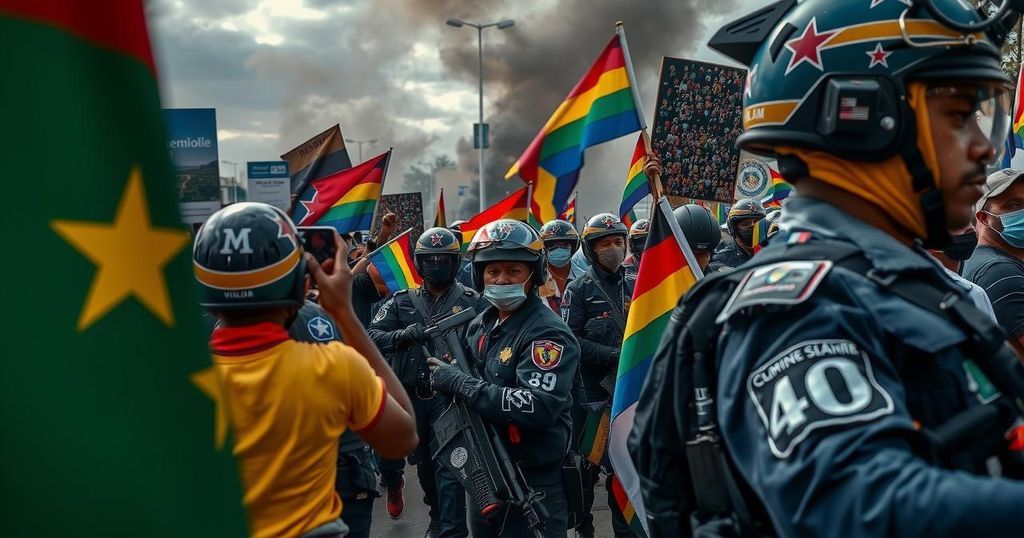Mozambique Government Bans Protests Amid Post-Election Violence

Mozambique has banned protests following violence after recent elections that saw Frelimo maintain power. Clashes with police have resulted in numerous deaths, prompting Interior Minister Pascoal Ronda to label the protests as “terrorism”. Opposition leader Venâncio Mondlane fled for safety following threats. Government actions include military deployment and internet restrictions, raising alarm over democratic integrity and human rights.
In Mozambique, the government has enacted a ban on protests amid ongoing violence following a contentious presidential election. The recent election saw the ruling party, Frelimo, maintain its hold on power, securing more than 71% of the votes, while opposition leader Venâncio Mondlane garnered approximately 20% but subsequently fled for safety due to threats against his life. Since the election results were announced, widespread protests erupted, leading to clashes between demonstrators and police, with Human Rights Watch reporting at least 18 fatalities and some rights groups claiming the actual count exceeds 30. Interior Minister Pascoal Ronda described the protests as “acts of terrorism” and urged citizens to collaborate with authorities to restore order, categorizing the protests as disruptive to public safety and everyday life.
The political climate in Mozambique has become increasingly volatile following the presidential elections held last month. Frelimo, which has dominated the political landscape since the country’s independence in 1975, faced accusations of election rigging and unfair practices from opposition parties and independent observers. The result, however, was met with public outrage, leading to protests primarily in the capital of Maputo. The government’s response has included deploying military forces and effectively restricting civil liberties, such as the right to assemble and access to the internet, under the guise of preserving public order and security.
The situation in Mozambique remains tense following the government’s ban on protests amid escalating violence and unrest. The election results have sparked significant opposition, raising concerns about democratic practices within the country. As government authorities term the protests as acts of terrorism, the response to civil dissent continues to be met with controversy, particularly concerning human rights and the safety of opposition figures. The unfolding crisis underscores the fragile state of democracy in Mozambique and the challenges faced by citizens advocating for change.
Original Source: www.bbc.com







